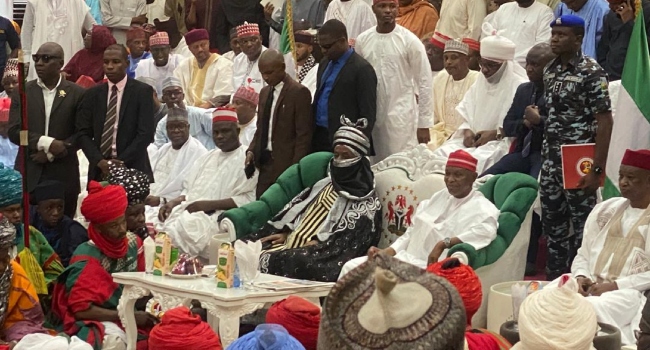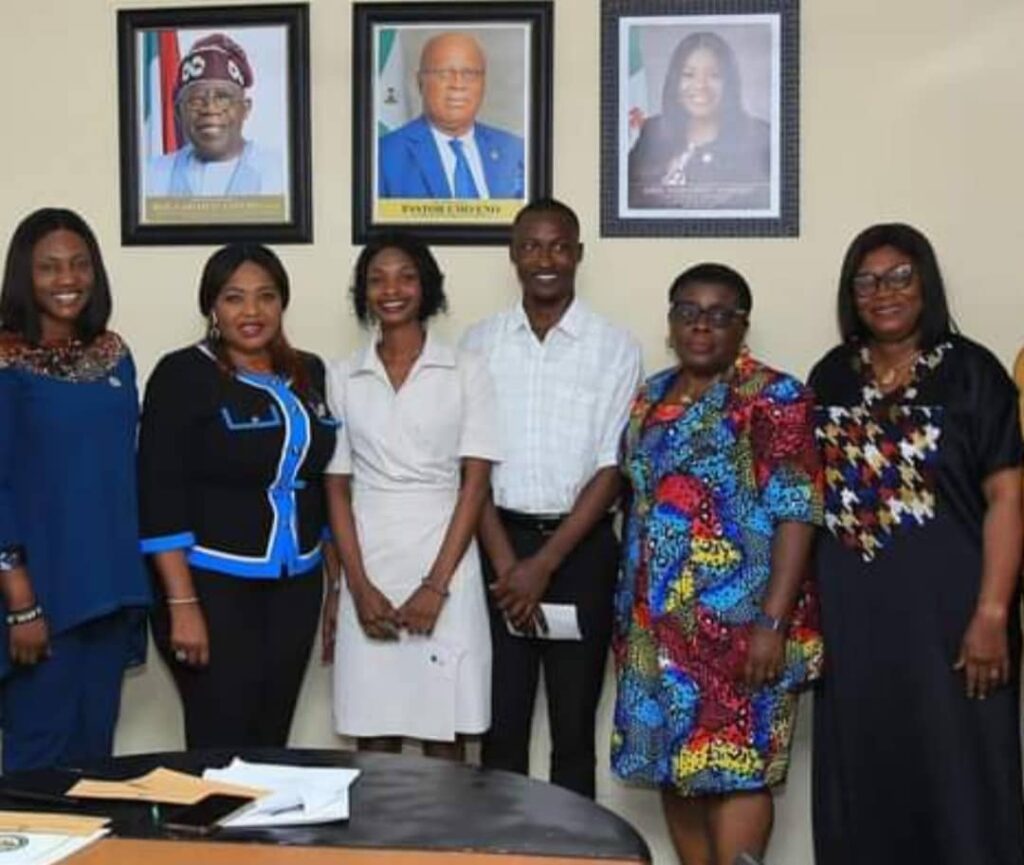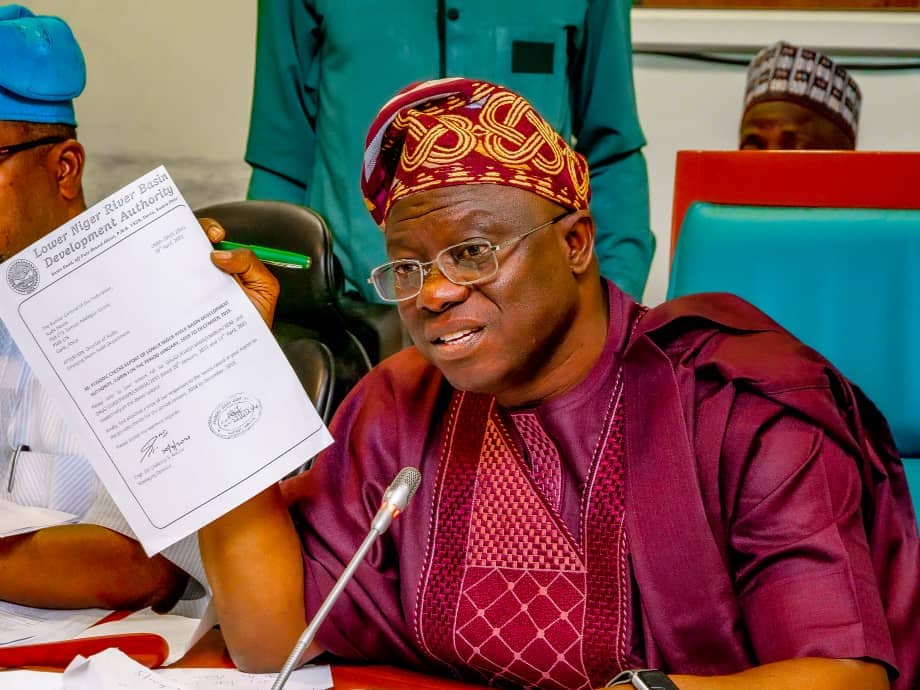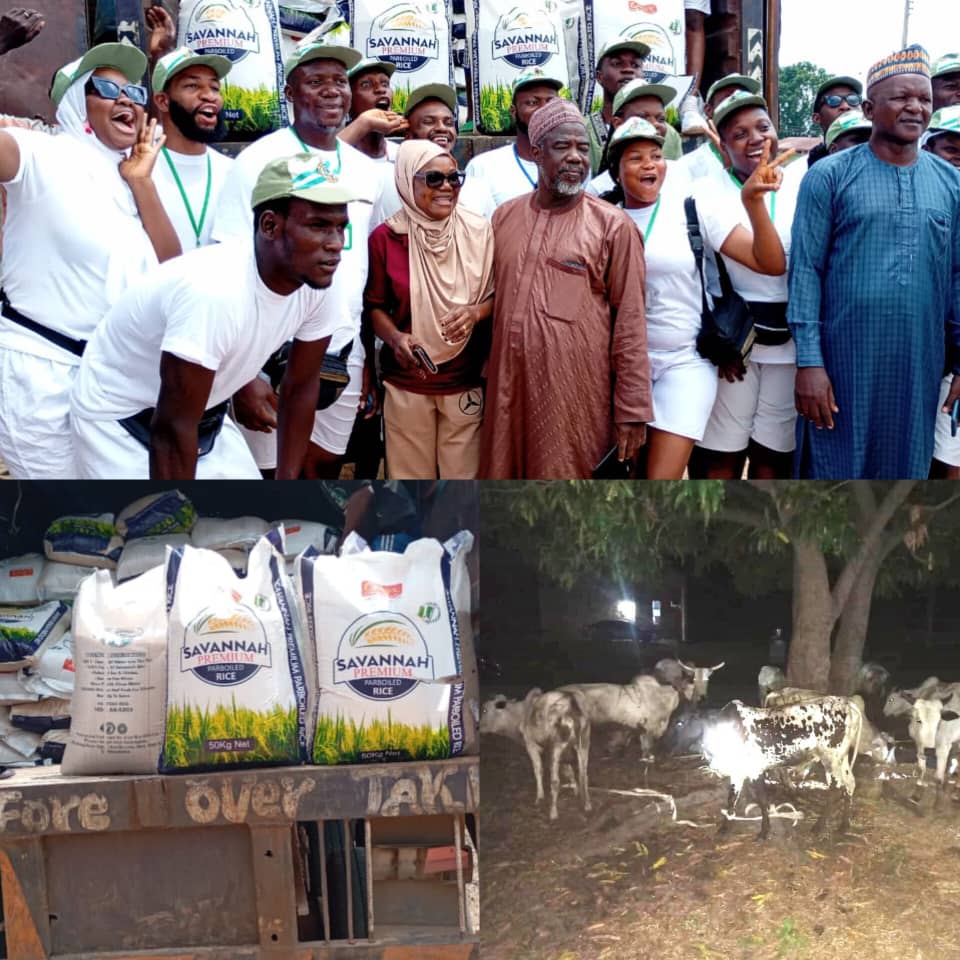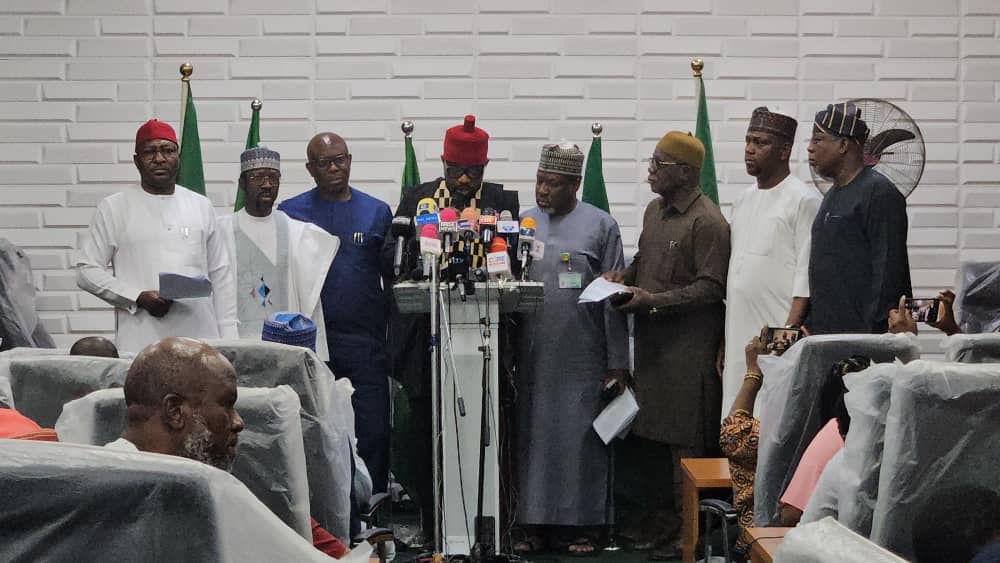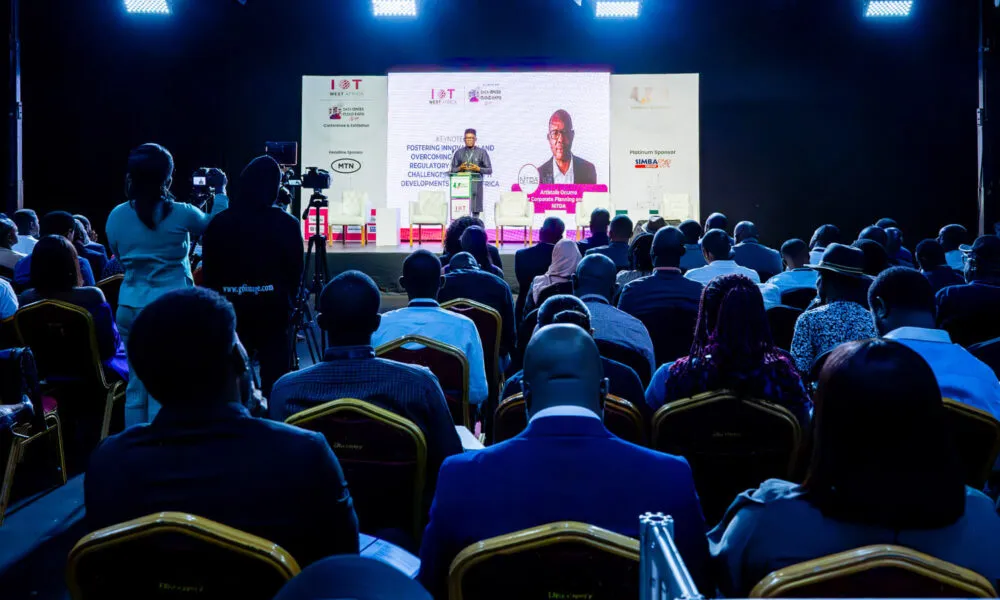
‘New wage payment possible if states get higher allocation, control mineral resources’
The Nigeria Labour Congress (NLC) and the Trade Union Congress of Nigeria (TUC) have come up with different figures for the new national minimum wage for workers.
While NLC is demanding N794,000, TUC said N447,000.00 was a moderate sum that would give workers the level of comfort that would enable them to cope with the current biting economic hardship that has turned majority of them into beggars.
Recall that the House of Representatives on Wednesday had backed Organised Labour’s demand for a living wage, proposing that no Nigerian worker should earn less than N100,000 as against the current N30,000 minimum wage that had been operational since 2019.
According to the labour leaders, it is required to narrow the widening gap of poverty among the employed and mitigate the erosion of the living standards of Nigerian workers.
Speaking at their presentations in Lagos, at the ongoing public hearing of the Tripartite Committee on National Minimum Wage, Southwest Zone, NLC Lagos State Chairperson, Funmi Sessi, and her TUC counterpart, Gbenga Ekundayo, said workers in the country deserve a living wage that would be set at a level that is fair and commensurate with economic realities.
They urged the tripartite committee, National Assembly, and the Federal Government to be fair and just in setting a decent minimum wage for workers, as well as the consequential adjustments for pensioners, either through the defined benefit scheme (DBS) or the contributory pension scheme (CPS), noting that they all attend the same market and source for goods and services in the country.
Each gave a breakdown of how the wage demanded would be spent, they said it was expedient to consider the current cost of living in Nigeria when determining the national minimum wage.
According to Sessi, the cost of essential services such as food, housing, transportation, healthcare, and education has risen tremendously and astronomically, making most of these services and goods out of the reach of the workers.
Presenting a quick analysis of the cost of living for a family of six consisting of a father, mother and four children, Sessi said with the increase in the cost of food items, each person will have to spend about N1,000 each on breakfast, lunch, and dinner.
Giving a monthly estimate, she said basic existence/survival wage in Nigeria for a family of six has food and beverage at the cost N3,000, translates to N540,000; housing/rent at N200,000; utilities/NEPA at N20,000; transportation at N2,000 for 22 working days translates to N44,000; medicals at N10,000; education at N40,000; social expenses at N20,000 and clothing at N10,000, all summing up to N794,000.
According to her, the estimate is based on N1,000 per person per meal for 30 days.
Similarly, TUC estimated that for a family of six monthly, accommodation would cost N20,000; utility and electricity would cost N20,000; water is N5,000; kerosene/gas for N20,000; food for six at N400 per meal three times daily at N216,000; medical at N30,000; clothing for a family of six per year at N20,000 monthly; education at N40,000; sanitation at N10,000 and transportation at N3,000 per day for 22 days implies N66,000 per month, all totalling N447,000 or $298.
Ekundayo lamented that across country comparison, looking at the minimum wage that is in operation in so many African countries, Nigeria has since been left behind. He said what Nigeria has as a national minimum wage was nothing but deceit that is borne to keep an average worker perpetually poor.
“Out of the eight countries surveyed, Equatorial Guinea has the least amount as minimum wage which is $224 per month. This is way off from that of Nigeria which is $20 per month. The difference in the minimum wage in Equatorial Guinea compared to Nigeria is 1,195 per cent. The National minimum wage being asked for through this memorandum, i.e. ₦447,000/month (an equivalent of $298/month) is therefore apt for now,” he said.
NLC further sought a bi-yearly review of the minimum wage to be in tandem with current realities.
HOWEVER, Governor Ademola Adeleke of Osun State has called for the review of the Federation Account Allocation Committee (FAAC) revenue sharing formula as well as the moving of solid minerals from exclusive to concurrent legislative list to enable state governments to pay the new minimum wage.
A statement issued by Adeleke’s spokesperson, Olawale Rasheed, disclosed that the governor made the advocacy in Lagos yesterday while attending the Southwest zonal public hearing on the new national minimum wage. Adeleke represents the Southwest at the National Tripartite Minimum Wage Committee.
Addressing labour leaders and other delegates at the public hearing, the Osun governor said there is a consensus on the need to increase the minimum wage but noted that a review of the revenue-sharing formula and amendment of the legislative list is necessary to boost the capacity of the states to pay the new minimum wage.
He said: “In all our meetings and various deliberations, one thing that the committee has been able to establish is that the workers in Nigeria are due for an improved welfare package. There is a consensus for an upward review of the National Minimum Wage because the existing one has become unrealistic.
“It has to be reiterated that the majority of governments at the sub-nationals can hardly sustain improved wages and salaries for their workers without a significant adjustment in some of the narratives in the national economy.
“In tandem with the public outcry for the review of the sharing formula for the federation account, the time has come for the Federal Government to revisit the matter. There is an urgent need for the review of existing sharing formulas in favour of states and local governments.
“I call on the National Assembly through the Revenue Mobilization Allocation and Fiscal Commission (RMAFC) to urgently take decisive action to look at the ratio objectively and realistically.”
The governor added that “the Federal Government and National Assembly must remove solid minerals from the exclusive legislative list.
“Every state in Nigeria has been blessed with one form of natural resources or the other. There is a strong appeal to move solid minerals from exclusive to concurrent legislative list,” Adeleke submitted.
On the new minimum wage, the governor stated: “Our position from Osun State is that workers deserve improved wages and salaries. Osun State government is in support of a new and realistic minimum wage for all workers within the limit of the available resources in a very sustainable manner.
“While it would be desirable to see that a uniform minimum wage is agreed on a national basis, it would amount to self-deceit to assume that states have equal ability to pay.”
He, however, posited that individual states would have to negotiate with their workers and agree to a realistic and sustainable minimum wage in line with the available resources.




